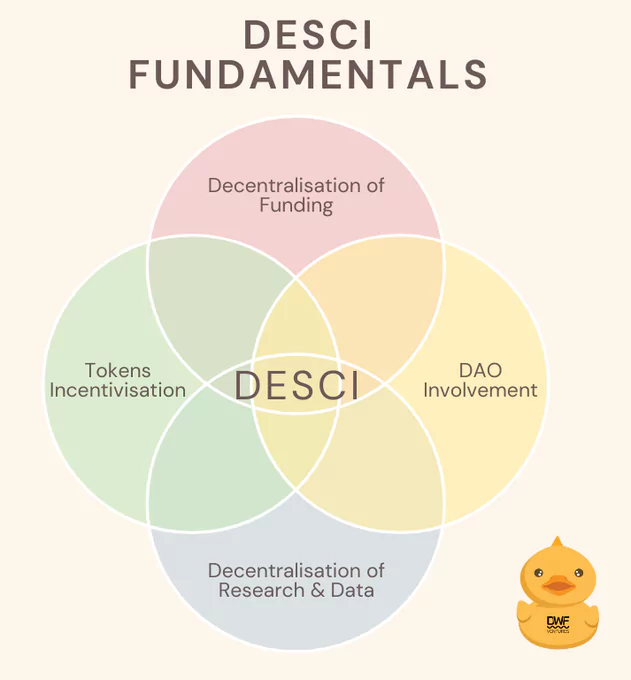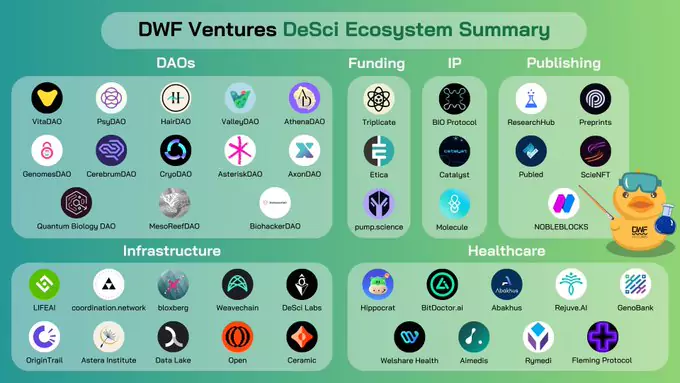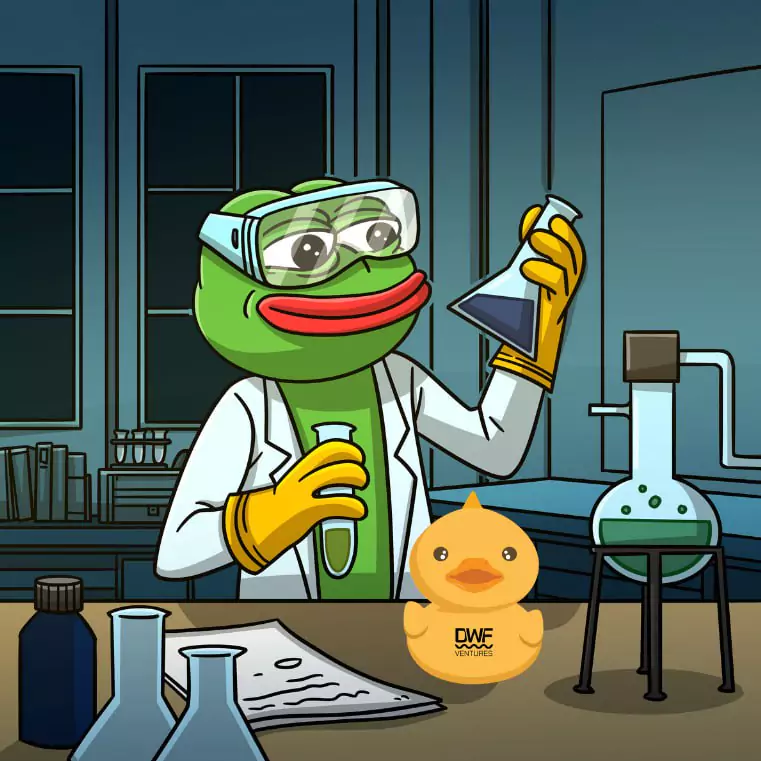Decentralised Science (DeSci) has gained a lot of mindshare, following discussions around the topic by Ethereum co-founder Vitalik Buterin and former Binance CEO Changpeng Zhao at Devconnect in November 2024.
This field leverages blockchain and Web3 technologies to enhance the transparency and accessibility of scientific research, aiming to revolutionise the funding, execution, sharing, and publication processes within the scientific community.
How DeSci Addresses Challenges of Traditional Science
The conventional scientific research landscape is often hindered by bureaucracy, political influences, and dependence on substantial capital funding. Additionally, centralised control over research data and intellectual property rights can impede the swift progression of scientific innovation. These obstacles can delay the exploration of novel ideas and slow down the overall advancement of science.
DeSci strives to overcome these barriers by decentralising research and funding mechanisms, thereby facilitating a more agile and flexible scientific process. Although still an experimental approach, DeSci holds the promise of unlocking various potentials that could transform the scientific research paradigm.
Core Principles of DeSci
- Decentralised funding. DeSci promotes community-driven funding models to address the challenges associated with traditional fundraising, thereby democratizing access to research capital.
- Decentralised research and data. In DeSci, decentralised networks are utilised for storing research findings, promoting transparency and broad accessibility.
- Token incentivisation. Tokenising scientific outputs is crucial in DeSci, as it paves the way to new economic models for discovery and innovation, aligning the interests of researchers, funders, and the public.
- DAO participation. Encouraging community engagement through decentralised autonomous organisations (DAOs), DeSci facilitates decentralised peer review and collective decision-making processes.

DeSci Projects: Classification and Overview
We classify DeSci startups into several categories:
- DAOs
- Funding
- Publishing
- Healthcare
- Infrastructure
- Intellectual Property

Feel free to navigate to our directory of almost 50 DeSci projects (as of December 17, 2024) working in either of these categories. Below, we give the description of every category and its key startups.
DAOs
Created via crowdfunding, decentralised autonomous organisations (DAOs) drive community-driven research by the means of collaborative funding, data ownership, and open governance. Each DAO tends to have its own specific focus.
One example is VitaDAO, which focuses on longevity and anti-aging research. It has secured funding from prominent entities, including Pfizer, and has been instrumental in advancing early-stage longevity research.
Funding
DeSci projects in the Funding category are centred around providing teams with financial support for research, promoting inclusive, transparent, and flexible funding models. These initiatives aim to democratise access to research capital.
Solutions range from periodic voting on proposals used by the Etica protocol, where decentralised communities decide how resources are allocated, to public raises on the Pump Science platform, which enables open crowdfunding for scientific projects. Additionally, many platforms explore token-based incentives.
Publishing
Free from the influence of centralised parties, DeSci publishing platforms aim to support open collaboration and accessible sharing of research. By leveraging blockchain technology and community governance, they strive to make ideas and discoveries flow freely, not restrained by traditional gatekeeping or financial barriers.
Research Hub is one example, with the recent SciCon conference discussing updates that could potentially increase participation, such as new incentive models for contributors and streamlined processes for sharing findings. It is intended to make the platform more user-friendly and impactful, encouraging broader engagement from researchers and institutions.
Healthcare
The Healthcare sub-sector of DeSci aims to improve transparency and health data management, along with facilitating new healthcare solutions through blockchain technology. By decentralising health records and enhancing data interoperability, Healthcare DeSci projects help patients keep control over their personal medical information.
Projects like BitDoctor.ai and Hippocrat are examples of teams working in this area, focusing on solutions such as decentralising AI for personalized diagnostics and token-based incentives for sharing anonymised health data. These platforms not only reduce reliance on traditional healthcare intermediaries but also foster collaboration for medical research.
Infrastructure
Infrastructure startups provide the foundation for secure, efficient, and transparent verification and exchange of data and resources in DeSci. These systems address critical challenges like data integrity, reproducibility, and interoperability, ensuring that scientific workflows, from data generation to dissemination, stay robust, distributed and tamper-proof.
One solution is the decentralized knowledge graph created by OriginTrail, which enables autonomous AI research by structuring and linking scientific data across domains. This approach not only facilitates collaboration but also allows AI systems to discover, analyse, and build upon existing research autonomously.
Intellectual Property (IP)
Lastly, projects focusing on improving the situation with intellectual property (IP) open up new opportunities for funding and commercialisation of research, making IP more accessible and liquid via tokenisation and governance. These DeSci initiatives ensure opportunities for collaborative funding, development, and commercial use of scientific discoveries without the boundaries of traditional IP systems.
Molecule DAO and BIO Protocol are key players in this area, facilitating the creation of IP-NFTs (non-fungible tokens) that represent fractional ownership of research and patents. These protocols have catalyzed the growth of many DAOs dedicated to specific research areas, aiming to pool resources and make collective decisions on how to fund and manage intellectual property.
Overall
The convergence of blockchain technology and scientific research through DeSci represents a vision of a more open, collaborative, and efficient scientific ecosystem. As this movement continues to evolve, it holds the potential to solve longstanding issues in the scientific community, improving the research and scientific process, ultimately accelerating the advancement of knowledge.
If you build in the DeSci space, contact DWF Ventures to discuss partnership opportunities.

